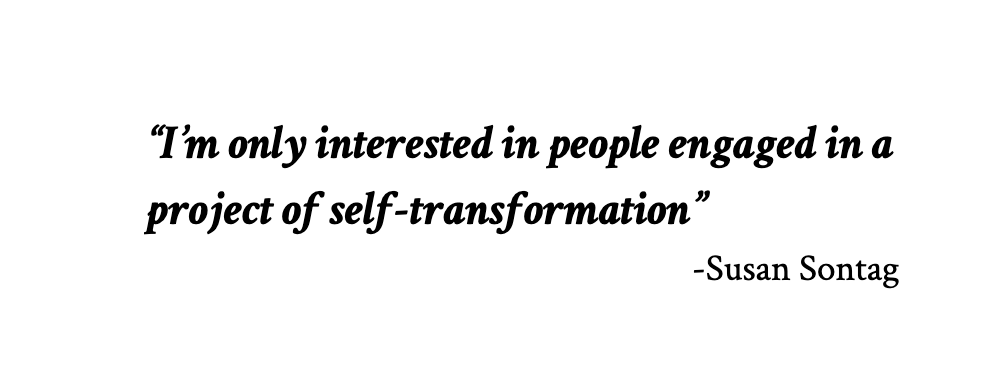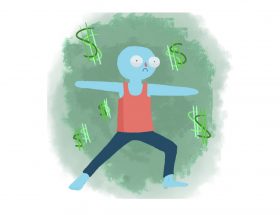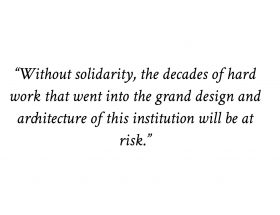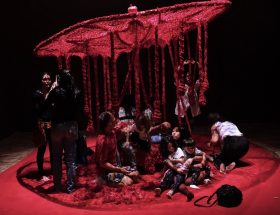Self-growth is a metamorphic concept that is one of the Holy Grails of today’s society. It is one of those notions whose definition depends completely and utterly on the person doing the defining. It is wholly about the context of the self, and the self’s societal environs. The beauty of its vagueness is that it can be adapted and is itself constantly undergoing the transformation it implies. To the philosophical, or potentially the pretentious of us, it can be all about the bettering of the moral self in a metaphysical realm, for others, simply learning how to cope with the everyday, and for the wellness and fashion industries – another marketing buzzword.
The one constant, however, is the sense of needed progress. We are always searching for something more, wanting to see a narrative arc in the procession of our lives. The most interesting works of fiction often include characters who change and alter, who learn and through the responding nature of their identities seem vivid and real. Human life is one of flux, and change is always considered more exciting than the reliable constant. For the eternal optimist, the possibility of something different is always the possibility of something better.
On a more pessimistic note, self-growth often seems to stem from the inherent belief that we are flawed. We find ourselves imperfect whilst believing that perfection is required. This is something that companies often profit from. Goop, for example, was given a valuation of $250m during its last round of funding last February. They try to tell us that what they offer will fill that work, make us like ourselves more. Clothes to feel beautiful, gym subscriptions to tone our bodies, green juices akin to Communion wine in their evocation of purity, and the many, many self-help books that are often targeted at women. We try to live by the guidelines of others, seeking affirmation in ticking prescribed societal boxes. Additionally, it would be easy to invoke the often declaimed evils of social media and its digital world of mirrors and carefully constructed visions of photogenic happiness. It can be a bubble in which we continually try to construct an impression of our identity through images. It is also a world where certain aesthetic values dominate, and a world where our vulnerabilities are often exposed through our gut responses to the perceived successes of others. Insecurity due to comparison with others is nothing new, it has just become more visible and prevalent through modern technology.
Instead, the feeling of falling short of some imagined ideal is really what happens when childhood ends. To quote Joan Didion, “Innocence ends when one is stripped of the delusion that one likes oneself”. It’s when we become aware of the certain railroads of life, the trains we are supposed to get in order to reach the next part of the journey. The right class at school, the right grades, then onto university, then a career, marriage and kids etc. We worry when we think we’re falling off those tracks, but to be perfectly honest, as someone who has fallen once or twice, it’s not that bad. The train won’t leave you behind and maybe you just need to figure out how to build your own way.
To end that railway metaphor there, that for me is what self-growth is. In many ways, it is kind of the opposite. It’s a reversion back to being a child, allowing yourself to dream and think anything is possible and to try not to be so afraid. It is remembering to look out for yourself, like you would remember to water a plant. To find what makes you happy (within reason) and pursue it and to see things outside the monochrome vision of failure and success. But, it is also to remember to look outside yourself, try new things and be open ideas and to be aware about the feelings and lives of others. In the world of today where problems like continuing inequality, injustice and global warming seem so overwhelmingly, impossibly big, it can be easier to turn inwards instead. The desire for progress and the belief in something better and the ability for growth, can be an incredibly powerful impulse. It’s just far more constructive when looking outwards, rather than looking in.
“You have grown a little beard, I said. You see it is not true that one can’t change.”
Elizabeth Hardwick




